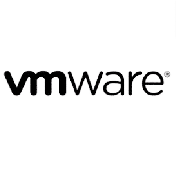Inhalt des Trainings
This course introduces the foundation and basic skills necessary for system administrators to configure and manage the Open System Services (OSS) environment on all HPE NonStop platforms. The course is 70 percent lecture and 30 percent hands-on labs using HPE servers.
After you successfully complete this course, expect to be able to:
- Configure the OSS subsystem and its components
- Identify steps to configure, install, mount, and delete a fileset
- Understand the OSS user requirements and how to create user identities
- Use and maintain OSS subsystem resources
- Understand post-installation tools and procedures
Zielgruppen
HPE NonStop System Administrators
Microsoft
Microsoft Office
ITIL
Red Hat
Cisco
 VMware
VMwareCitrix
Unix Linux
Amazon AWS
 Oracle
OracleAutoCAD
IBM
Hewlett Packard Enterprise (HPE)
Google
Salesforce
AI – Artificial Intelligence
Automatisierung
Cloud Computing
Grafik
IT-Management
Development
Security
Netzwerk
Data Science
Soft Skills
Video Based Trainings
Nachhaltigkeit
